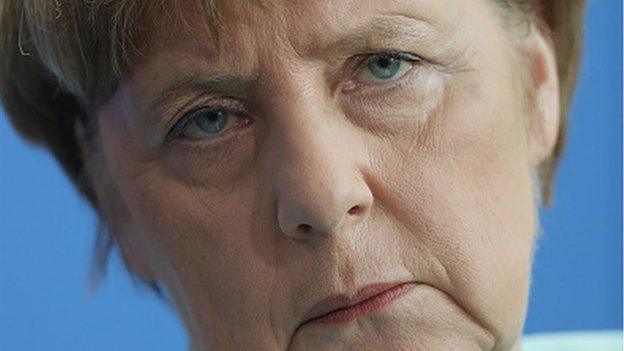Europeans ready to play hardball over Brexit
- Published
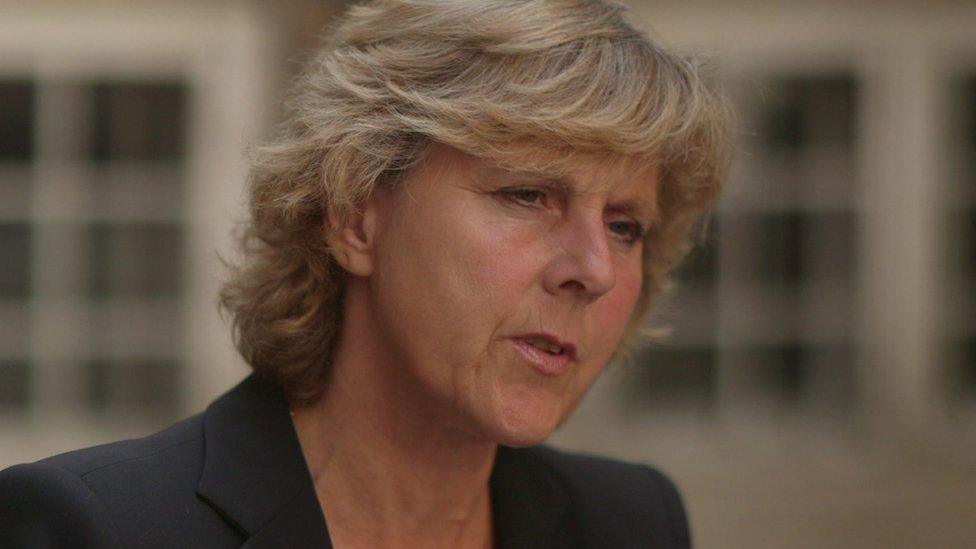
Connie Hedegaard believes a deal could take years
From Berlin to Paris and Rome, European governments are now engaging seriously with the possibility that Britain may vote to leave the EU and are making plans accordingly.
The possibility of prolonged political and financial instability leads former Danish Prime Minister and Nato chief Anders Fogh Rasmussen to say: "I would be in favour of a very quick solution to this," adding: "These will be tough talks."
However, fellow Dane Connie Hedegaard, an EU commissioner until 2014, told the BBC's Newsnight programme she doubted a rapid negotiation was possible, because of the complexity of the issues and the number of other major crises demanding attention.
"Don't expect this to be an easy thing, it will take years and years," she said.
Prospect of Brexit bemuses and worries Germany
Germany conflicted on how to handle Brexit
German power is the real key to Europe
EU referendum: All you need to know
Adding to the challenges facing British diplomats would be a desire on the part of many to make an example of the UK.
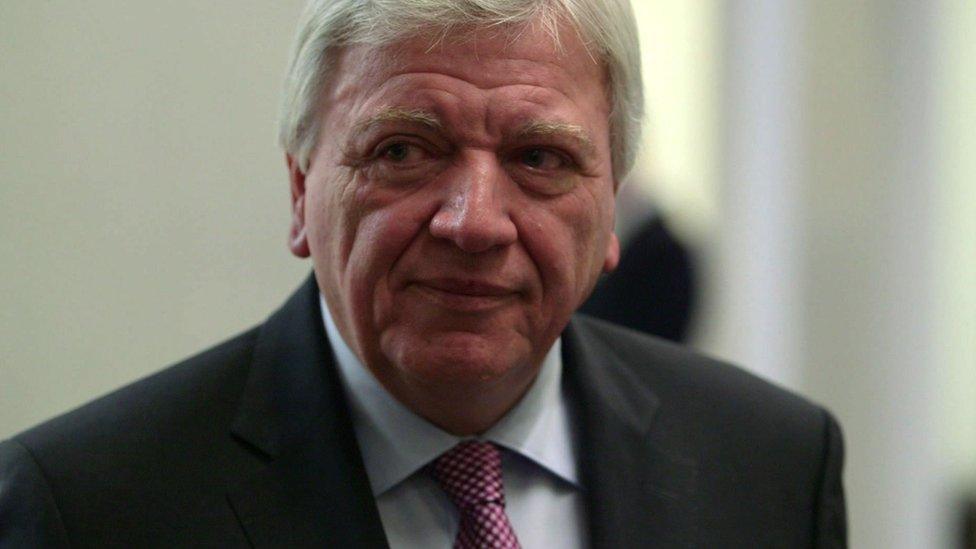
Volker Bouffier favours a tough line in negotiations
Volker Bouffier, leader of the German state of Hesse and a senior figure in German Chancellor Angela Merkel's CDU party, told Newsnight he favoured a tough position in negotiations that would deny the UK access to the single market.
He said: "That sort of a concept that the UK still might have a common market with the EU afterwards is in my opinion a pure illusion."
He was echoing the views of German Finance Minister Wolfgang Schaeuble, that "in is in and out is out", external.
Supporters of the Leave campaign have suggested that if they win, they might wait for some time before invoking Article 50, external of the Lisbon Treaty, which lays out a procedure for leaving.
So might this period after a vote, but before the formal notification of departure, allow time for one more attempt to negotiate with the UK?
Last week France's Economy Minister Emmanuel Macron suggested other European countries would not wait for the UK to set its own schedule, rather, he said, "in the interests of the EU, we can't leave any margin of ambiguity or let too much time go by".
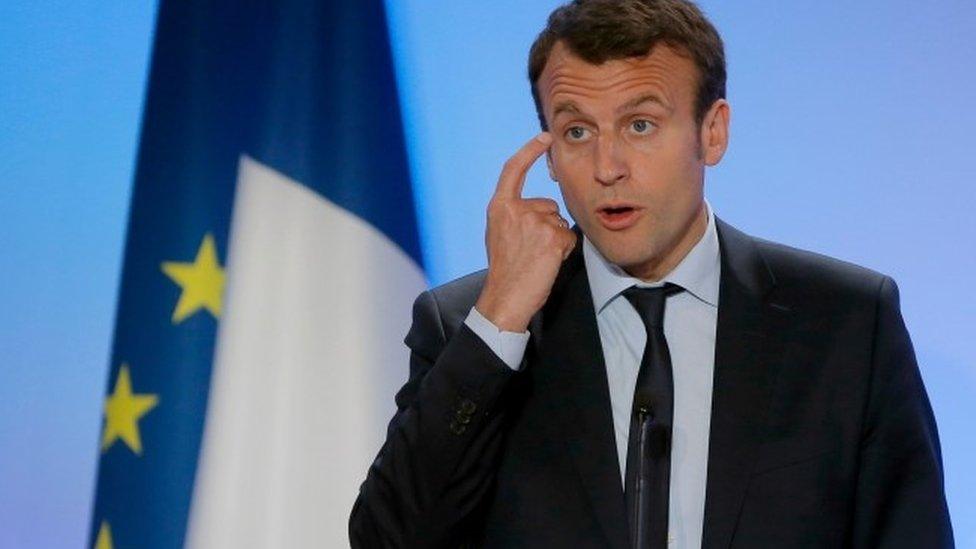
Emmanuel Macron said Brexit would make Britain "a little country"
However Juergen Hardt, foreign affairs spokesman for Germany's CDU party, several days ago, suggested a more nuanced line than that of his finance minister, arguing the EU should not immediately close the door on British membership if the Leave campaign wins.
This statement was apparently designed to allow wriggle room for Prime Minister David Cameron should the vote be exceptionally close.
However, most of the insiders I have spoken to in recent weeks feel a pro-Brexit vote, unless it was by the narrowest of margins, would be very hard to argue with.
They expressed concerns that Mr Cameron's government, having already negotiated one set of concessions, in February, should not be allowed more, for fear of encouraging other European countries to make their own demands.
"If people get the impression that you can vote to leave but nothing really happens", says Mr Rasmussen, "then people in other countries might be tempted to try exactly the same."

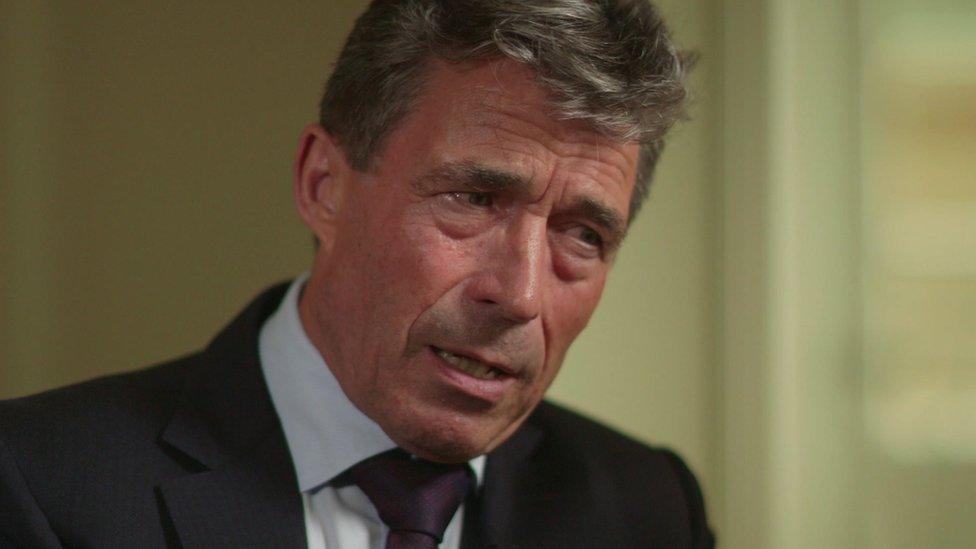
Anders Fogh Rasmussen
Anders Fogh Rasmussen:
First elected to the Danish Folketing (parliament) in 1978
Began as a critic of the welfare state, but moved towards the political centre through the 1990s
Became prime minister in 2001, heading a centre-right coalition as leader of the Venstre party
Won two further terms in 2005 and 2007
Resigned as prime minister in 2009 to become secretary-general of Nato

Similarly, Gunter Verheugen, a German EU commissioner from 2004 to 2010, says there can be no "creative" solution by the institutions in Brussels.
"First of all, the commission will try to avoid precedents," he says
"It will not promote a solution that creates appetite for other states to follow the British example."
As for the terms for UK business with the EU, different governments can be expected to array on differing sides.
France and Italy, many say, will take the toughest line.
On the other hand, the Netherlands, Denmark, and perhaps some Central European nations such as Poland might all argue for a more understanding line.
Germany central role
Once again, following the example of the eurozone and migrant crises, Germany would probably take the central role in forging a common position for the rest of the union.
However, the idea that Germany might put the preservation of its markets in the UK, for example for cars, ahead of its wider interest in preserving the EU and safeguarding it from further defections, is erroneous, according to many Germans in politics.
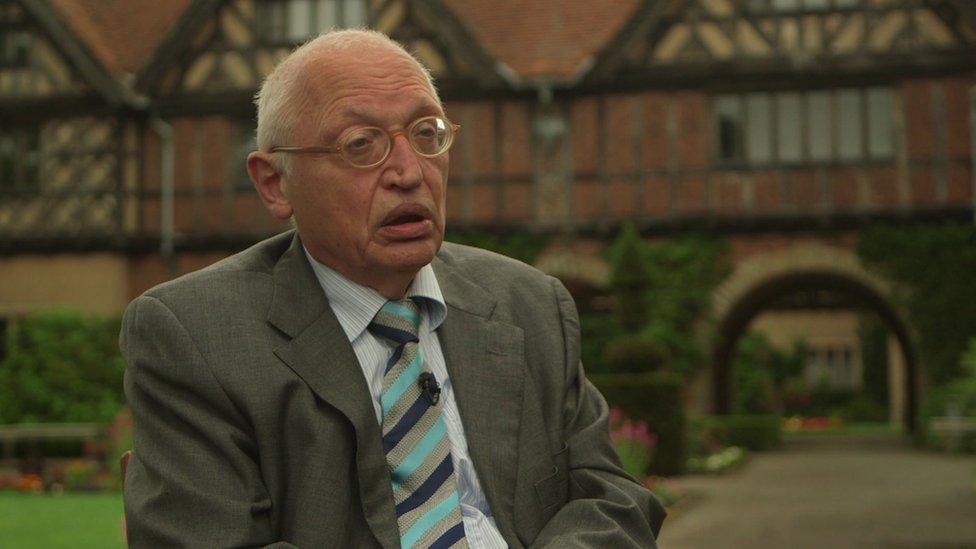
Gunter Verheugen says other states must not be encouraged to leave the EU
Explaining the current debates within Mrs Merkel's CDU, Christoph Schult, foreign affairs editor of Der Spiegel magazine, says some believe it necessary to "show British misery", post-Brexit, to deter others from leaving.
This, he says, will require Germany to "be tough" in its negotiations with Britain.
The idea the UK should become an example - and not in a good way - may seem like an odd strategy for the rest of the EU to pursue.
But that is the view of several people, on and off the record, to whom I have spoken in recent days, and they appear to be in earnest.
Mark Urban is diplomatic and defence editor for BBC Newsnight. You can read more from him on his blog, and follow him on Twitter, external
- Published18 June 2016

- Published18 June 2016
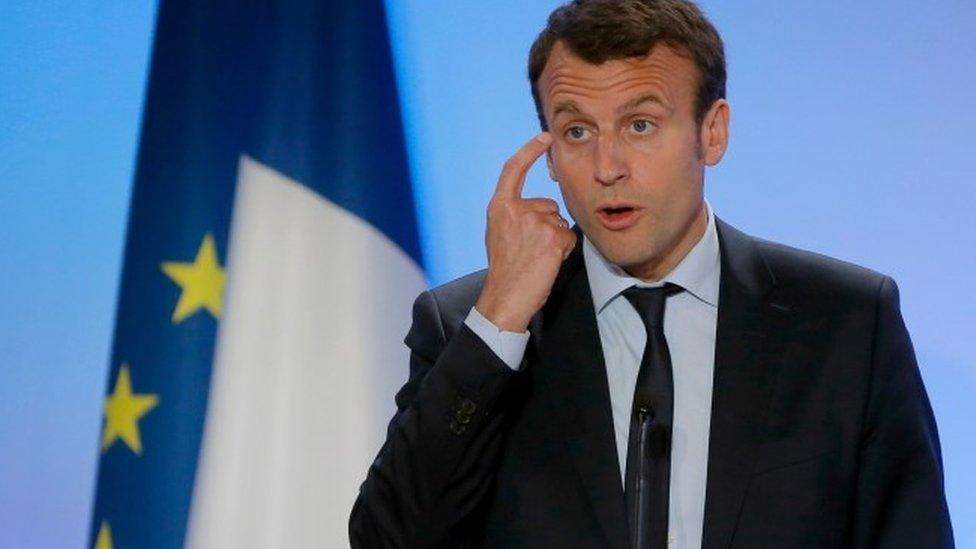
- Published15 June 2016
